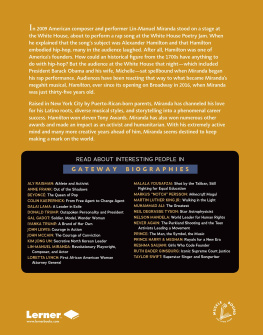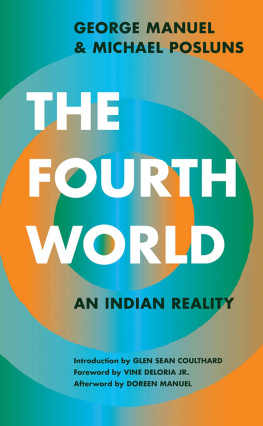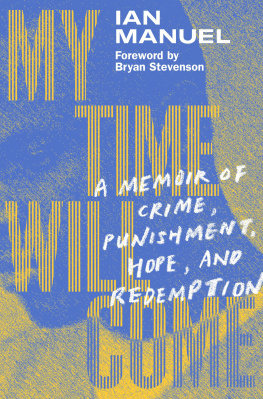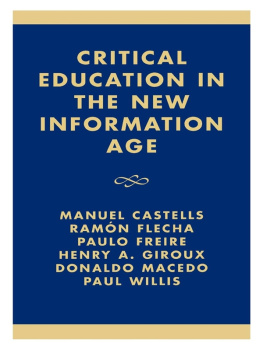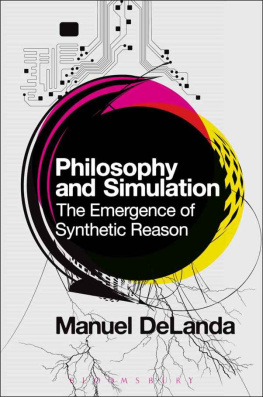W e are grateful for the kind advice and direction provided to us by Dr. Doug Delaney, Royal Military College of Canada (War Studies), as this work was in its early stages. We also thank the Royal Newfoundland Regiment Museum for its excellent guidance regarding the regimental history generally that assisted us in framing the Manuel story.
Introduction
W hy do Arthur Manuels Great War experiences merit publication today, almost forty years after he made his late-in-life decision to tell his story? Manuel was an unheralded First World War veteran, a relatively anonymous Royal Newfoundland Regiment (RNR) private. His impoverished rural Newfoundland village upbringing is depressing but unremarkable, given the early-twentieth-century life Manuel describes in his corner of Britains oldest and poorest colony. Large families, in an economy dominated by remote, imperious fishery and lumber barons, often carved a bare subsistence living from a rugged, sometimes inhospitable, landscape. This was the shared experience for many young men who saw their August 1914 RNR enlistment as a way out.
Manuels wartime service record in training and battle is equally undistinguished. He was never promoted. Formally and informally disciplined at various times for minor insubordinations, curfew violations, and misdemeanors, Manuel was not NCO (non-commissioned officer) material. His 1917 capture at Passchendaele and subsequent POW status until the Armistice was a longer imprisonment than endured by many others, but in a war where thousands were captured on both sides, this particular detail is not unique. On his May 1919 demobilization, Manuel leaves the regiment without regret, and shortly thereafter departs for Ontario he never returned to Newfoundland for more than a few days at any time after 1921. He had little apparent contact with any fellow RNR First World War veterans during his long career as a hotel owner in faraway Windsor, Ontario. The most noticeable fact concerning Manuels RNR service in the last sixty-six years of his life was his utter refusal to ever discuss it with anyone. War wounds, especially his badly scarred elbows, hips, and left foot were kept well covered. Questions from his children and later grandchildren regarding the old mans military experiences were bluntly dismissed by Manuel as being nobodys business except his.
Manuel was a First World War RNR veteran and his family knew very little else. No one dared to seek out any details. Other than his monthly Canadian veterans pension cheques delivered in the mail, this taciturn man kept his wartime life secret. No medals were hidden in a drawer or displayed on his mantelpiece. No Gallipoli, Somme, or Passchendaele photographs were produced at his family gatherings, nor did Manuel permit any discussion concerning his military service to continue within his earshot. He did not belong to the Royal Canadian Legion, the countrys official veterans organization. Manuel is not known to have ever attended any of the annual November 11 commemoration ceremonies that have marked Remembrance Day in every Canadian city from 1920 onward. As his long life moved to its inevitable conclusion, Manuel did not merely systematically bury the Great War that he had survived he seemingly obliterated it.
At age seventy-five, Manuel travelled alone to Beaumont-Hamel. He visited the terrible killing field, recalling how he survived the ill-fated July 1, 1916, RNR assault against German defences that signalled the beginning of the Battle of the Somme. Over eight hundred men had gone over the top fewer than sixty answered roll call the next day. He made his own travel arrangements to reach France. No advance effort was made to contact his former regiment or to seek out anyone from his First World War life. His 1984 death in London, Ontario, was not publicly commemorated or noticed beyond the immediate Manuel family just an old mans passing.
In our intensely digital age, where all personal information seems eventually accessible, it is difficult to imagine that facts concerning any First World War veterans service and later life could not be ferreted out by anyone with an interest. Until years after Manuels death, any research would have involved painstaking paper-file reviews and the co-operation of the subject to ensure the researcher was pointed in the right direction. Today, anyone can download Manuels service record from the Veterans Affairs Canada website. It tells the bare bones account of his enlistment, training, deployment, service, capture, release, and demobilization. Brief mention is made of his German imprisonment, with cryptic references made to delays in his official POW registration, eligibility for Red Cross packages, and medical attention. The records kept by the passionate volunteers who maintain the RNR archives in St. Johns are only slightly more informative. Manuel never discussed his POW experiences in any official pre-mobilization debriefing. He passed from the regiments collective consciousness when he left for Ontario, never to return.
The proud RNR history spans four centuries, with battle honours won for the British Crown in service against Napoleon, in defence of the emerging Canada against the Americans in the War of 1812, and in its renowned Great War regimental triple Gallipoli, the Somme, and Passchendaele. Manuel is a previously anonymous piece in this honourable history. The dry official record would not prompt even the most diligent or passionate regimental researcher to make deeper inquiries regarding this man who left Newfoundland behind.
In 1980, at age eighty-four, what prompted Manuel to decide that he must now tell his Great War story? The Manuel family were only aware that the old man was infuriated over a Veterans Affairs decision to deny him a claim made for an additional monthly supplement. The precise dispute details are unknown. Manuel did not need additional financial support; his retirement was reasonably comfortable the proceeds of his Windsor hotel sale were sufficient for his modest late-in-life needs. Manuels decision to purchase a dictation machine and commit his reminiscences to writing through the assistance of a local stenographer was only fully appreciated years after Manuels death. As with his other First World War memories, Manuel did not discuss his personal history project with anyone, other than his stenographer. On receipt of her finished copy, Manuel put the work away, and it was only discovered by accident by his grandson in an unmarked box amongst other Manuel family effects in 2011. A nondescript shoebox, four hundred pages of single-spaced type, and sixty hours of tape are the raw materials from which A Boy from Botwood has been assembled.
Manuels true motivation to tell his story after such a long, self-imposed silence, one marked only by his often belligerent refusal to answer any military service questions, will likely never be known. His Great War account is all the more compelling when set against this background. Manuel does not suggest his story is either a dispassionate dissertation or one that provides the reader with an infallible regimental history. He does not pretend to harbour any feelings except disdain, bordering at times on hatred, for the British military leadership whose decisions largely determined every RNR battle outcome. It is difficult at times to discern which elements of Manuels descriptions of overall Allied war strategy are contemporary to his RNR service and which were driven by his later detailed, lifelong examination of how the war was actually conducted.
His extensive writings are a compendium of Manuels personal experiences, overlaid with his later informal studies. Marxist-tinged views and socialist philosophy are each prominent, if secondary, themes providing powerful contradictions with the postwar life of this otherwise commercially successful hotel owner. A Boy from Botwood is the distillation of over sixty years of Manuels wartime memories, filtered and re-filtered as his life moved on. These circumstances presented profound challenges for us, the custodians of his story, whose ambition was to ensure that Manuels powerful, undimmed reminiscences were effectively fashioned into a cohesive, compelling narrative.




